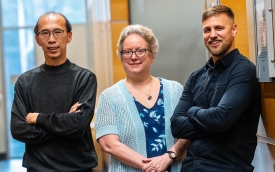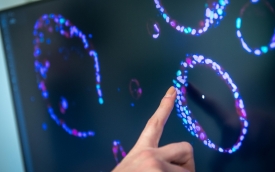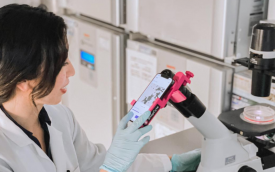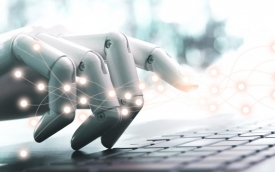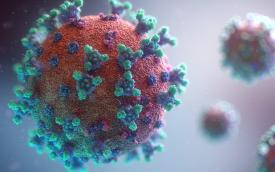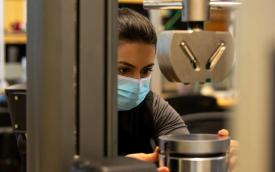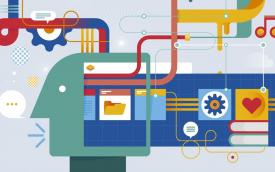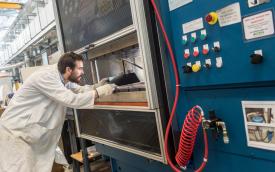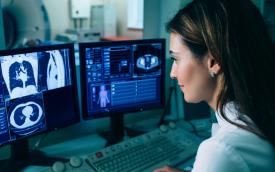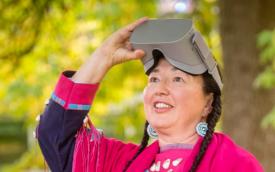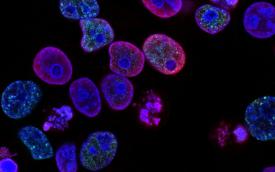
Artificial Intelligence (AI) is transforming technology and the world around us. At UBC, our researchers lead the way in developing the underlying algorithms that power AI and in developing new applications of AI that are changing the nature of research and generating impacts in areas as diverse as human and environmental health, language and culture, and the discovery and optimization of materials.
Our researchers are applying machine learning, natural-language and image processing to transform medical diagnosis and treatment, to assist in complex decision making, to discover and optimize materials, to alter how we teach and learn, and to determine what data we can trust. Others are tackling the concerns around privacy and the ethics of AI as it becomes an increasing part of our everyday lives.
AI-Focused research Centres and Clusters
Researchers across our faculties and campuses are applying AI in many different ways. The following centres and research excellence clusters are those focused primarily on AI.
Medical Diagnosis
UBC researchers are developing applications of AI to make more rapid diagnoses of diseases, like sepsis, and to put the diagnostic power of tools, such as portable ultrasound, into the hands of more physicians, transforming emergency and rural care. They are using AI to enable the earlier diagnosis of diseases and finding new ways to predict patients' risks of developing conditions such as dementia.
Drug and Treatment Discovery
UBC researchers have harnessed AI in a new platform to help discover the most promising opportunities for new treatments and therapeutics, rapidly screening billions of drug compounds. They are also developing algorithms that can find “invisible” results, such as those in microscope images, and using AI to assist in planning treatment, and even predicting the next wave of illicit and untested designer drugs.
Language Processing
Learning what sources we can trust in the deluge of data and information is one way in which UBC researchers are applying AI. Natural-language processing is also being used to examine how AI can better build coherent narratives from data and help to ensure signs of patient distress are identified from clinicians' notes. Our researchers are also exploring the applications of AI in preserving and revitalizing languages.
Assisting Decision Making
Our researchers have an impressive track record of developing algorithms that are applied to assist human decision making, such as optimizing business decisions based on market conditions or doing the heavy-lifting in making complex decisions on a national scale. They are also applying AI to enhance corporate and educational environments and make the decisions that can safely guide autonomous driving.
Materials Discovery
From automating experiments that test and optimize new, green materials, to making stronger and more reliable composite materials, UBC researchers are applying AI to discover new and more effective materials.
Computer graphics and imaging
UBC has a long history of developing and utilizing AI to enhance image, graphics and animation applications. The SIFT algorithm developed more than 20 years ago remains the gold standard in image matching and transformation, with commercial applications including panoramic image stitching. Other UBC researchers are applying AI to animation and object recognition.
Monitoring & Environment
UBC researchers are applying AI to help monitor our environment and enable faster and safer responses as well as assess the safety of our water supplies.
Teaching and Training
UBC researchers are using AI to develop new ways of teaching and learning in dynamic environments.
Ethics and Privacy
Concerns around ethics and privacy in the age of artificial intelligence and AI-assisted technologies such as drones and bots are the focus of a number of our researchers. While some UBC researchers are looking at how to ensure that AI is applied in ways that do not adversely impact us, others are also investigating how AI can actually can be harnessed to preserve or enhance our privacy.


